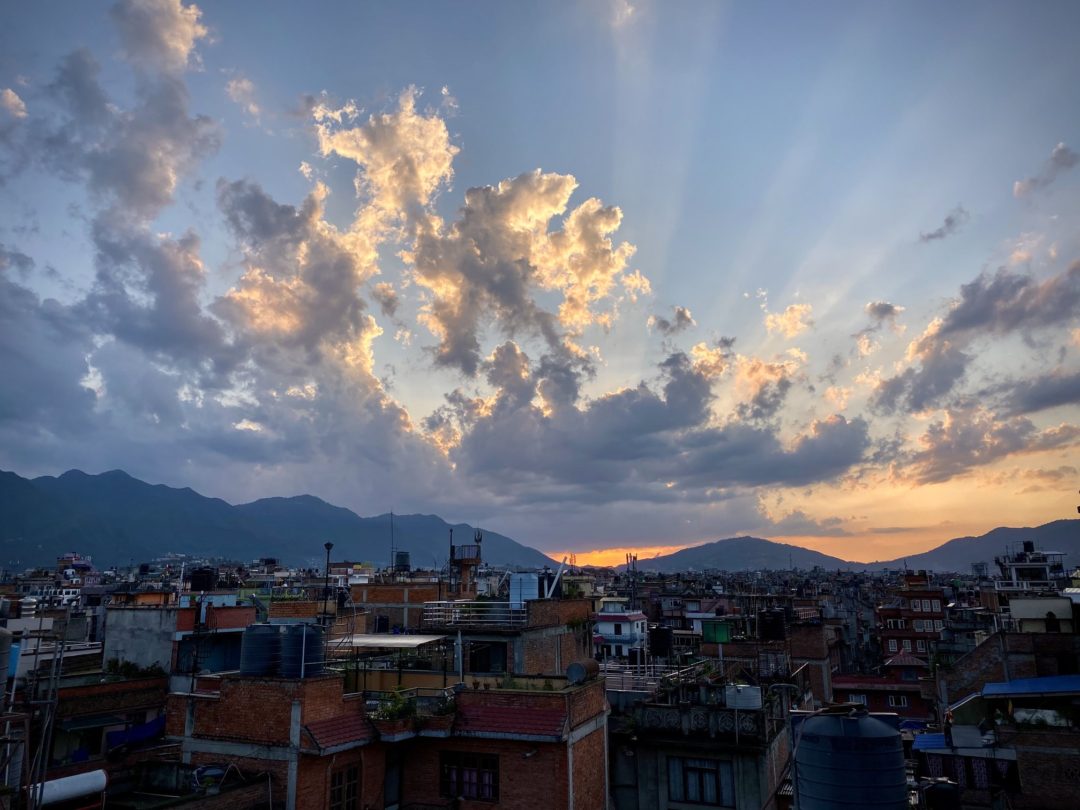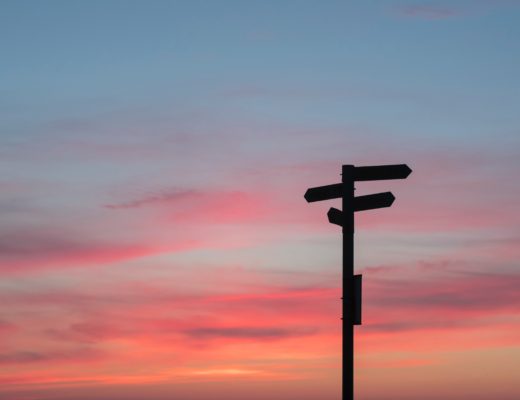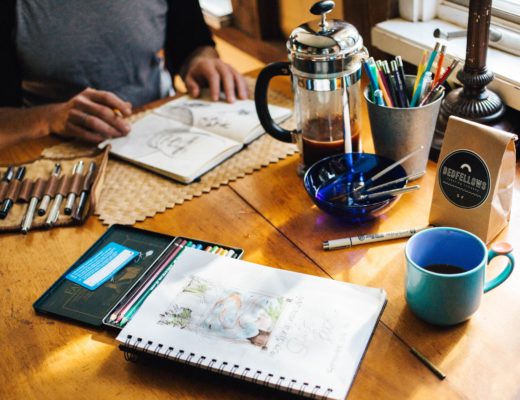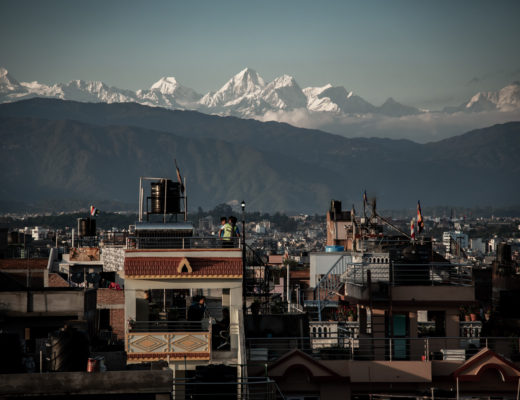It’s now been a couple of weeks since the lockdown in Nepal started to be eased. As I reflect on the three months that have undoubtedly changed the course of world history, the first thing that strikes me is just how resilient humans are.
I say this because I know at certain points during lockdown I had reached my limit. I faced despair, anger, sadness, loneliness, and sometimes a lethal cocktail of all of them stirred vigorously together. And no, it didn’t feel good.
And yet I now look back and I struggle to accurately capture the overall feeling. I just know I had lost hope. The awfulness that I felt has been relegated to some deep and dark crevices of my brain, and today I mostly feel okay.
I know it was awful, but it’s already a distant memory.
So yes, we’re resilient. But sadly, this means we tend to forget a lot of the lessons we learn along the way. Once the status quo has been reestablished or we find our feet again, we can easily carry on as nothing has happened.
I don’t want that to be the case this time, though.
Lockdown gave us the gift of time and self-reflection. I’m not going to claim that this was a time of butterflies and rainbows. No, it mostly bloody sucked. But I’ve found that the most difficult life events are the ones that teach you the most important lessons.
These are my mine:
Feelings pass
I’ve always known this, but during lockdown, I saw it in action on a daily basis. One minute I’d be feeling fine, the next I’d feel like it was the end of the world, the next I’d feel euphoric, the next I’d feel hopeless.
This kind of mood swing could take place within the space of a few hours.
Seeing how fleeting emotions were helped me to handle the tricky ones better. I knew that if I just sat with it long enough without feeling the need to numb or space out, it would pass.
And yes, it always did. Eventually.
It’s important to sit with difficult emotions
This kind of follows on from the above point. We mostly try to avoid feeling difficult emotions. We numb them with too much work, too much alcohol, too much food, too much of anything that helps distract us. But by doing this, we’re missing out on so much.
Difficult feelings can be great teachers. We must learn to sit with them.
‘Security’ is an illusion
I once wrote a blog post on the topic, so I’ve already known this one for a while, but lockdown amplified the lesson. I think the pandemic forced people to realise that nothing lasts forever. Security is an illusion. That job you thought was secure? It can be taken from you at any given moment. The person you thought you’d spend the rest of your life with? You can break up in the blink of an eye. The savings you cling onto so dearly? They can disappear if life suddenly goes awry
The pandemic made us realise that even those seemingly small things that we take for granted – like hugging a loved one – can also be snatched away at any given moment.
For some, this a scary realisation. For me, it was liberating. It helps me to be more present, and to also follow my heart instead of chasing security in the name of what society tells me my life should look like.
The poor and vulnerable are always the worst hit
Being in Nepal during a global crisis meant I was hit with the reality of this. It was a smack in the face. I’m not one who can ignore the suffering of others, so it was particularly difficult to watch the distressing images of people going hungry or returning migrants enduring awful conditions on their journey home.
I’ve said this a few times during the lockdown and I still stand by it: I will never be the same again after this.
And I don’t want to be. I want to do more to fight for equal rights. I want to do more to help eradicate poverty. It is not okay that in this day and age so many people still don’t have their most basic needs met. Everyone deserves to know where their next meal is coming from. Everyone deserves a proper education. Everyone deserves a safe roof over their head. Everyone should live their life with dignity.
It’s not okay that this still isn’t the case. I encourage you all to sit with this realisation, and to then think of the things you can do to help those most vulnerable within your communities.
Not everyone was privileged enough to worry about the virus
We were privileged to sit at home and stay safe – this was not the case for a huge chunk of the world’s population. Again, try and sit with that thought. Think of how it must have felt to be someone vulnerable and not be able to shield yourself from the dangers. Think of how it must have felt for a daily wage labourer who was more afraid of hunger than the virus. Think about how it must have felt to be stranded abroad without a job or money. Think of how it must have felt to give birth without even a blanket to wrap your newborn baby in.
Think.
It’s uncomfortable, right?
We need to feel that discomfort in order to act. My main wish is that we don’t rush back to our busy daily lives and start to avoid all issues that we need to face up to.
We need each other
Experiencing lockdown on my own was a lesson in just how much we need people. Although I’m an introvert, I’ve realised I’m a very social one. It was extremely difficult not seeing anyone, and I found myself longing for social interaction.
Thanks to the lockdown, so many of us were able to reconnect with those we’ve lost touch with over the years because of how busy our lives are. It felt so wonderful to have the time to chat with not only my close family and friends, but also so many others who have touched my life in one way or another.
These connections that we share are sacred. I hope we start to value them more.
Helping others helps us
My 37th birthday was spent in lockdown. Initially, I was dreading it. I couldn’t even bring myself to think about how it would feel to be stuck at home without my loved ones.
I then decided to do something to flip the situation. A dear friend of mine works closely with a company called Kokroma, which ordinarily makes children’s clothes. She told me how because of lockdown, a lot of vulnerable women were giving birth on the streets and had nothing to wrap their babies in. Not even some scrap material.
Imagine.
So Kokroma started making essential mother and baby packages to distribute to these women to help them give birth with some comfort and dignity.
When she told me the story, I decided I wanted to do something to help raise money for them. I settled on a 10km walk around my apartment on my 37th birthday.
Once I fixated on raising money for a good cause, I barely thought of the fact that I was going to be spending my birthday in the weirdest of circumstances. And on the day of my birthday, walking around in circles in my flat, I felt a deep sense of purpose. I kept thinking of the women giving birth without anything to wrap their babies in, and it was enough to spur me on.
I didn’t feel an ounce of self-pity. Just a full heart at being able to do a little something to make my small corner of the world a bit better.
Stress is the body’s worst enemy
During the first month of lockdown, I had an inexplicable pain. It radiated in the upper left side of my body and went from one area to another: one minute it was in my neck, the next minute it was in my shoulder, armpit, elbow, breast, wrist.
It was unlike anything I had ever experienced before.
Before lockdown began, I found a swollen lymph node in my neck. At the time I put it down to the fact I had been run down and likely had an infection. I’m no stranger to swollen lymph nodes, so I wasn’t concerned at the time. But the lockdown gave me way too much time to think and worry about things you wouldn’t normally think or worry about.
So, I put the two together and convinced myself I had cancer. Awful, I know. And I wasn’t able to go and see a doctor for reassurance because of the restrictions on all movement within the city.
When I was finally able to go and see a doctor it turned out that the source of the pain was, in fact, anxiety.
Who would have thought it?
After this, I read When the Body Says No: The Cost of Hidden Stress by Gabor Maté in which he talks about how psychological stress plays a powerful role in the onset of chronic illnesses such as breast cancer. It was an eye-opener.
In short, managing stress is extremely important for our well-being.
Crows are fascinating birds
If you follow me on Instagram, you’ll know that I developed quite the fondness for crows during lockdown. I would sit by my window to enjoy my morning coffee and observe the birds for ages.
It’s through this process of constant observation that I realised that they’re fascinating birds. I then read that they have advanced problem-solving and communication skills. In fact, they can even remember faces.
We mostly live our lives on autopilot
Which brings me to my next point: Crows have always been fascinating. They’ve always been out there flying around, exhibiting all kinds of interesting behaviours. But I never watched them as closely before, because I was too busy or consumed with thoughts of “What am I doing next?”
While I pride myself in being someone who appreciates the simple pleasures in life, I still wasn’t taking enough time to slow down and smell the roses. I realise that now.
Nature offers us so many opportunities to truly marvel: sunrises and sunsets, the smell of rain, the sight of crows doing fascinating things. It’s important to slow down and truly appreciate these things.
Nature nourishes and heals us
If I think back to all the things that helped me through lockdown, I realise that the common theme was nature: the potent, invigorating energy of the sunrise, the entertaining behaviour of the crows and monkeys that frequented the tree opposite to my living room windows, the stunning views of the snow-peaked Himalayas when all the dust and pollution settled, the cool evening breeze that greeted me when I sat on the rooftop.
Nature is healing. Nature is nourishing. Nature gives us life. And all we do is pillage and destroy it.
It’s time to take a step back and look at ways in which we can all become more conscious of our behaviour and how we can improve. I truly feel that the pandemic was Mother Nature’s final warning to us, and it’s up to us to heed it.
The relationship you have with yourself is the most important one you’ll ever have
I talk extensively on the topic of self-love and have previously written a post on my journey to self-love. While I pride myself on the amount of progress I’ve made over the last five years, I realise now that much like any other relationship, the relationship you have with yourself needs continuous attention. And much like our relationships with others, big life events can make or break it.
Thankfully, the relationship I have with myself is stronger than ever post-lockdown.
It wasn’t easy. I was often frustrated with myself at how apathetic I felt. But because of all the tools I’ve developed over the years, I was able to keep reminding myself that I needed to be understanding and gentle.
This was a lockdown. Whether we realised it or not at the time, it was bloody hard. These were unchartered waters, and the uncertainty loomed heavily over our heads. We had to be gentle with ourselves.
I’ve come out of lockdown feeling that the relationship I have with myself is the strongest it’s ever been. As someone who’s always struggled with this in the past, I must say it feels great to finally know what it means to be your own best friend.
Time is a funny concept
Did anyone else feel that lockdown was going to drag, only to then find that the days were flying by?
I’d get up at 6am pretty much every day feeling frustrated at the Groundhog Day that loomed ahead of me, only for it to suddenly be 6pm and to find myself wondering where the hell the time had gone.
Time is fluid, I’ve realised. When there’s nothing to look forward to, the days just blend into one massive amalgamation of days, and for some reason that makes it seem that it’s flying by.
And no, I don’t have any scientific explanation for this.
I miss hugs
I’ve always been a big hugger, so going through lockdown on my own was pretty tough. I still have only hugged one friend in three months, and it’s been really difficult to get used to this new norm of only greeting loved ones with a smile.
I miss hugs, and I miss human contact.
Which brings me onto my next point…
I don’t want to take the small things for granted ever again
Did you ever think you’d see the day when you’d genuinely wish for nothing more than to go out and get a coffee made by someone else? When you’d wish you were able to sit in a restaurant and be surrounded by strangers even for just an hour? When you’d wish you could go for a long walk? Hug a loved one? Speak to someone face to face? Smile at a stranger on the streets?
These are all things that we mostly did on auto pilot. I mean, when did any of us truly sit and think “I wonder if there will be a day when I won’t be able to do any of this?” I’ll hazard a guess and say rarely.
In the future, whenever I find myself getting frustrated by inane things, I want to remind myself of lockdown. I want to try and envision myself stuck in my apartment, wishing I were anywhere than these four walls. I want to envision myself dreaming of having a coffee in a courtyard, dreaming of hugging a friend. I want to remind myself to never take anything for granted, no matter how small or seemingly insignificant.
The virus has truly been humbling.
Hope can run low, but it never runs out
There were moments when hope was running extremely low, like a candle that’s about to go out but still somehow clings on. That’s how close I was to running out of hope. And yet, every so often – whether that was for a few minutes in the morning while drinking my coffee and watching the sunrise, or after a call with a loved one – I would feel a deep sense of “everything is going to be okay.”
Did I have any guarantees that it would be okay? No. But the hope was there.
Hope, at the end of the day, is all we ever truly have. Without it, we’re finished. So even when it feels like there’s nothing left to play for, you’ll still find flickers of it. It may get dimmed, it may threaten to go out, but it never, ever truly leaves you. You just need to look a little harder for it sometimes.




